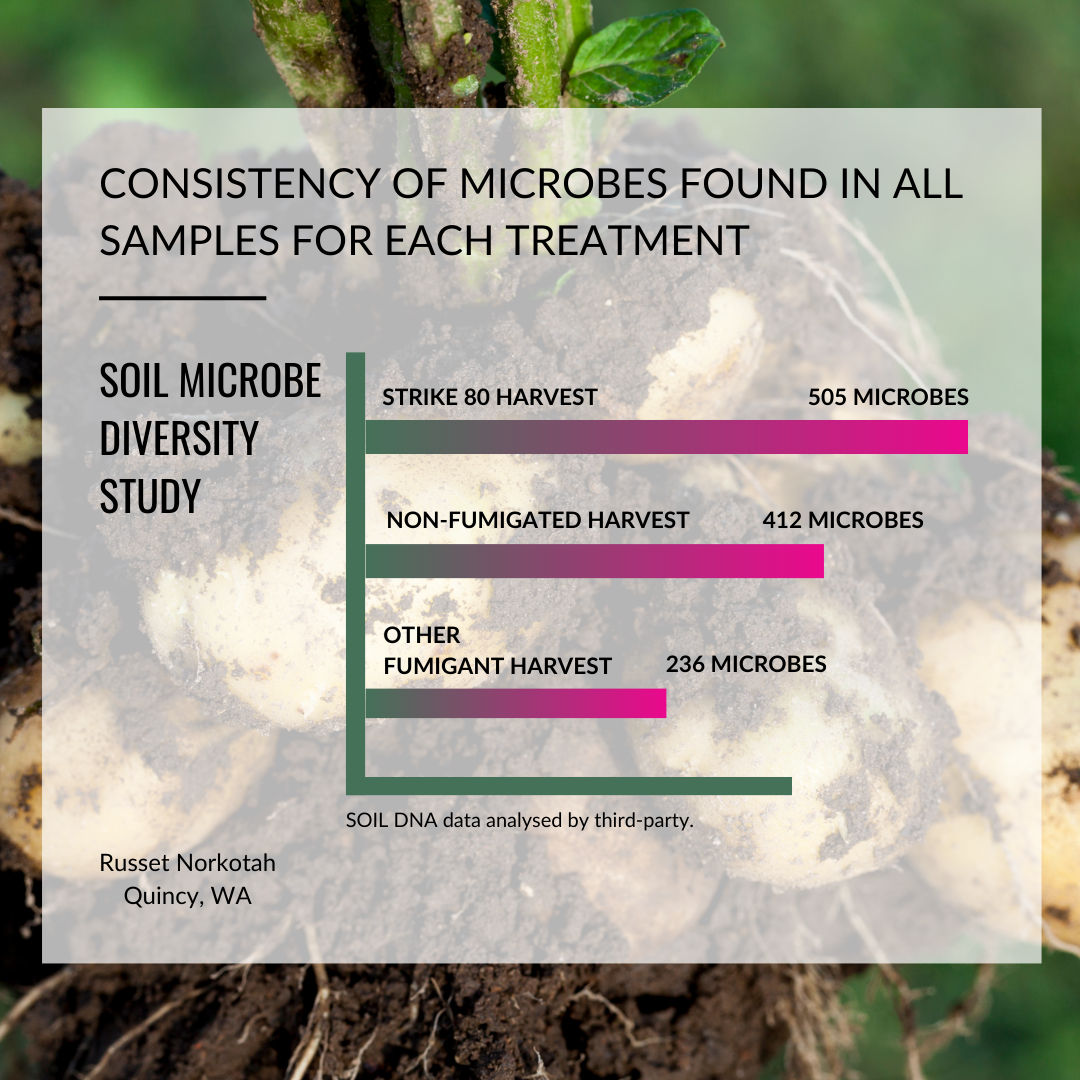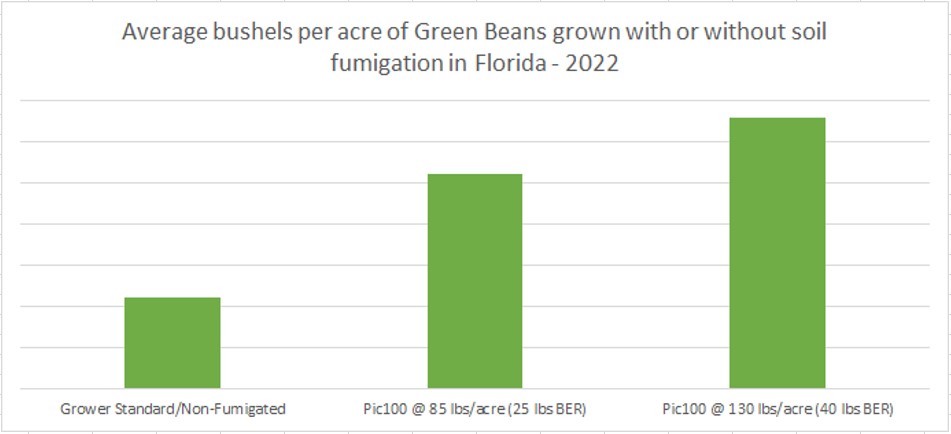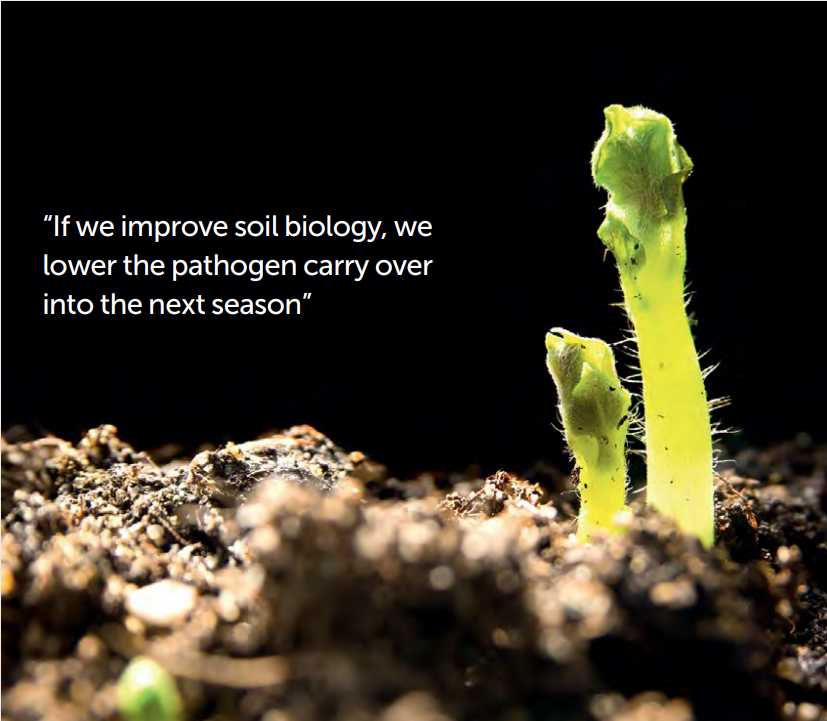

 For years, farmers have been using a variety of methods to increase crop yield and improve quality. A growing number of farmers have realised the health of their crops depends on the health of their soil.
For years, farmers have been using a variety of methods to increase crop yield and improve quality. A growing number of farmers have realised the health of their crops depends on the health of their soil.
Given that crops like potatoes, onions or carrots develop most of their marketable yield below the soil surface, it is extremely important to start with the best conditioned soil. STRIKE products applied two to three weeks prior to planting, effectively manage many common pests and diseases such as Black dot, Rhizoctonia, Common scab, Pink Root, Fusarium, Sclerotinia, and Nematodes.
Read More >>>
Case study results from TriCal’s innovative approach to soil health fumigation and biologicals.
TriCal Australia knew it could help solve yield problems on an onion farm in Myalup, WA and in the Murray Bridge. Two trials showed that Pink Root, Rhizoctonia, Fusarium, Verticillium wilts, Sclerotinia, Pythium, and parasitic nematodes was suppressed by fumigation, allowing for a great improvement in yields.
Read More >>>
The benefits on pineapple crop performance and improvements on soil health when using STRIKE Soil Fumigants have been evaluated by TriCal in different locations such as Hawaii (USA), Costa Rica, Mexico, and Honduras. Over the past three years, TriCal Australia has been conducting extensive research in the Queensland Pineapple industry to determine the best fumigant to be used across the varying soil types and pest and disease pressure for our own conditions.
Read More >>>
Soil health dramatically decreases after a flooding rain event due to waterlogging and introduced pests and diseases from other land areas. The most effective solution is to fumigate the soil to control these pathogens and rebalance the native beneficial soil microbe population, conditioning it ready for planting.
Read More >>>
Grower Experience – Trentham Cliffs, NSW
The grower previously had total plant deaths of his tomato crop where it was found that Verticillium and Fusarium wilts had killed all of his plants when they reached the growth stage. The grower decided to apply Strike fumigant to greenhouse soil on day 1 that had 4 rows of dripper tubes placed on the soil. Plastic was laid over the whole soil surface area that covered the dripper tubes. The fumigant was applied through the drippers and then flushed with clean water. Irrigation was applied on days 3 and 7 after fumigation for 20 minutes each session. On day 14 the plastic sheeting was removed and the soil was allowed to breathe. On day 15, the tomato seedlings were planted into the soil.
Read More >>>
Cucumbers are one of the most pest and disease susceptible vegetable crops and are extremely sensitive to Root Knot Nematodes, Rhizoctonia and Pythium levels. Moderate numbers of each detected on the SARDI DNA tests will cause economic damage and result in severe yield losses and quality downgrades. If Nematodes are detected on a soil test, it is highly recommended that soil fumigation be undertaken prior to planting. Soil fumigation has consistently shown to suppress soil pest and disease levels in cucumbers to below economic damage threshold levels resulting in increased yields and quality of the crop.
Read More >>>
Pre-plant soil fumigation treatment with Strike is the first step in a successful soil health and pest management system. Reduced soil-borne disease and increased beneficial soil micro populations following Strike soil treatment lead to a healthy soil environment. Experience a full circle of benefits to help you Strike back.
Read More >>>
 Trial Location: Braham Produce, Virginia, S.A.
Trial Performed By TriCal Australia, Wingfield, S.A.
Trial Location: Braham Produce, Virginia, S.A.
Trial Performed By TriCal Australia, Wingfield, S.A.
The Adelaide Plains region, located just outside of Adelaide, South Australia, is the largest greenhouse growing region (1500ha) in the southern hemisphere. This region suffers from soil pest and disease issues that greatly reduce the yields and quality of the crops grown. Soil fumigation has traditionally been the main method to suppress these soilborne pests and diseases. Soil fumigation in past times has been very hit and miss, with prescriptive fumigation only in recent times becoming the most cost-effective method employed. This trial was undertaken to show the effective control of Root Knot Nematodes, utilising Strike 60 applied at 500kg/ha. This trial was part of a larger project that looked at not only the effects of soil fumigation but the effects of efficient water and fertiliser use on crops grown in fumigated greenhouse soil. Detailed soil pest and disease testing has previously never been undertaken at weekly intervals to see the effectiveness of nematode suppression. This work aimed to fill this information void.
Read More >>>
 You’d be hard pressed to look anywhere in agriculture today without running into the word ‘sustainability’. The whole industry is pressing forward on sustainability…but what does sustainability really mean?
You’d be hard pressed to look anywhere in agriculture today without running into the word ‘sustainability’. The whole industry is pressing forward on sustainability…but what does sustainability really mean?
How do we define sustainability’s goals, how do we choose the tools to move sustainability forward, and how do we assess whether we’re achieving measurable sustainability improvement? Could new genomic tools that can identify soil microbe composition help us move toward ‘functional sustainability’?
Read More >>>
 TriCal Australia has worked closely with a Bundaberg, Queensland, farming business to help improve soil health.
TriCal Australia has worked closely with a Bundaberg, Queensland, farming business to help improve soil health.
The business encompasses three generations of sustainable farming practices along with state-of-the-art business management systems. Their fresh chili varieties and vegetable, herb, and chili puree products are now supplied and in demand in the Australian and global market through multinational food and beverage companies.
Read More >>>
 By Josh Mays, TriEst Ag Group.
By Josh Mays, TriEst Ag Group.
Building off of our traditional success in tobacco and our more recent watermelon results in 2020-2021, we wanted to trial our low rate system in another crop that fit the specifications outlined earlier; 60-120 day crop, high value, not currently being fumigated as a standard practice. An opportunity was found in Florida with fresh market green beans. After reviewing the economics of green bean production in this region and considering the chloropicrin rate ranges we had seen increased vigor/yields in other crops, the following protocol was set for the trial:
Read More >>>
 The PotatoLink team brought together potato experts to share their knowledge on a range
of topics to assist growers produce better potatoes, with theoretical practices backed up by practical examples from the field.
The PotatoLink team brought together potato experts to share their knowledge on a range
of topics to assist growers produce better potatoes, with theoretical practices backed up by practical examples from the field.
The Growing Better Potatoes Workshop was hosted by Australian Horticultural Research (AHR) and the PotatoLink project. PotatoLink is funded through the fresh and processing potato levies and contributions from the Australian government.
Read More >>>